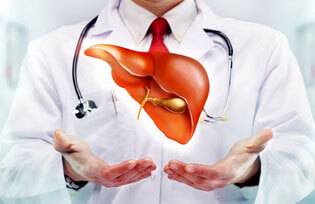Hepatology Treatments

What is Hepatology?
Hepatology is the branch of medicine that focuses on the study, diagnosis, and treatment of liver diseases and disorders. This field encompasses a wide range of conditions affecting the liver, including viral hepatitis, alcoholic liver disease, non-alcoholic fatty liver disease (NAFLD), cirrhosis, liver cancer, and autoimmune liver diseases. Hepatologists, who are specialists in this field, work to understand the underlying mechanisms of liver diseases, develop diagnostic and treatment strategies, and help patients manage their conditions. In addition to medical treatment, hepatologists may also work with patients to address lifestyle factors such as diet and alcohol consumption that can impact liver health.
When should you consult Hepatology?
You should consider consulting with a hepatologist if you experience symptoms or have a condition that may affect the liver, such as:
- Jaundice – yellowing of the skin and eyes
- Abdominal pain or swelling
- Nausea and vomiting
- Loss of appetite
- Unexplained weight loss
- Fatigue or weakness
- Dark urine or pale stools
- Itchy skin
- Elevated liver enzymes on blood tests
- History of heavy alcohol consumption or injection drug use
In addition, if you have been diagnosed with a liver disease or disorder such as viral hepatitis, NAFLD, cirrhosis, or liver cancer, a hepatologist can provide specialized care and help manage your condition.
It’s important to note that liver disease can progress quickly, and early detection and treatment can significantly improve outcomes. Therefore, if you are experiencing any of these symptoms or have concerns about your liver health, it’s recommended to consult with a hepatologist or your primary care physician as soon as possible.
What are treatments for Hepatology?
The treatment options for hepatology depend on the specific liver disease or disorder being addressed. Some common treatment options include:
- Medications: Depending on the condition, hepatologists may prescribe medications such as antiviral medications for viral hepatitis, immunosuppressants for autoimmune liver diseases, or medications to manage symptoms and complications of liver disease.
- Lifestyle modifications: Hepatologists may recommend lifestyle changes such as limiting alcohol consumption, maintaining a healthy diet, and engaging in regular exercise to manage liver disease or prevent its progression.
- Procedures: For certain liver conditions such as liver cancer, hepatologists may recommend procedures such as tumor ablation, embolization, or transplantation.
- Surgery: For some liver diseases such as bile duct disorders, liver cysts, or gallstones, surgical procedures may be recommended.
- Supportive care: In cases of severe liver disease or acute liver failure, supportive care such as hospitalization, intravenous fluids, or artificial liver support systems may be necessary.
It’s important to note that the treatment plan will be personalized to the patient’s individual condition and health status. The hepatologist will work closely with the patient to develop a treatment plan that is safe, effective, and tailored to their specific needs.
Type of process follow by Hepatology?
Hepatology typically follows a process that involves several steps, including:
- Evaluation: The first step is a thorough evaluation of the patient’s medical history, physical examination, and diagnostic tests such as blood tests, imaging studies, and liver biopsy. This helps to determine the underlying cause of the liver disease or disorder and its severity.
- Diagnosis: Based on the evaluation, the hepatologist will diagnose the specific liver disease or disorder affecting the patient.
- Treatment planning: Once the diagnosis is made, the hepatologist will develop a personalized treatment plan that may include medications, lifestyle modifications, procedures, or supportive care, depending on the patient’s condition.
- Ongoing monitoring: Patients with liver disease or disorders require ongoing monitoring to assess their response to treatment and to detect any changes or complications that may arise. This may involve regular blood tests, imaging studies, or other diagnostic tests.
- Patient education: As part of the process, hepatologists also educate their patients about their condition, treatment options, and lifestyle modifications to manage their disease and prevent its progression. This may include guidance on healthy eating, exercise, avoiding alcohol and drugs, and taking medications as prescribed.
Overall, the goal of hepatology is to provide comprehensive, personalized care to patients with liver disease or disorders and to help them achieve the best possible outcomes.

